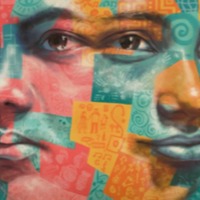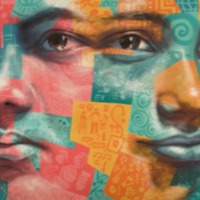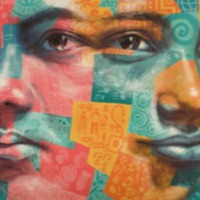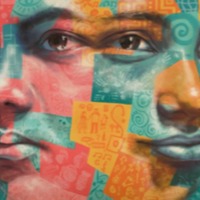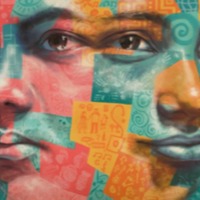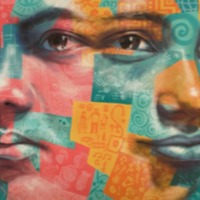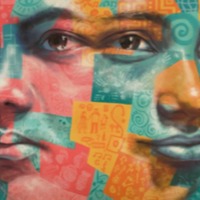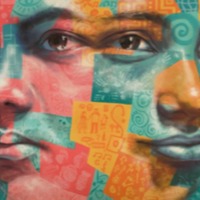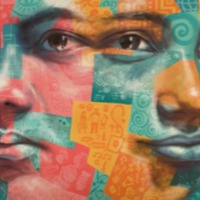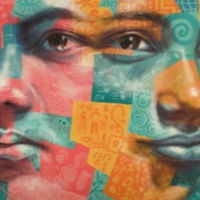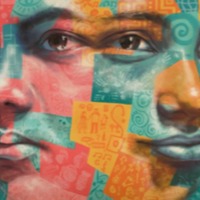
I am Annabel and was born in 1991 in Bohol. I was happy as a child until my father raped me. I was six. It was my mother’s birthday and he raped me in our own house.
Despite what he did to me, I still showed respect to him and did not tell anyone about it because I wanted my family to be intact. I did not want a broken family.
I graduated elementary school when I was 13 and it was sad because my mother and two sisters were late so I requested my grade four teacher to escort me up to the stage.
After graduation I worked as babysitter for one of our neighbours but left after some months because my male employer made sexual advances towards me. I went home but my father always nagged at me for not helping to put food on the table so I went working as a sales lady in one of the local convenience stores in our community. I found the work too strenuous for me because I had to lift very heavy things so I quit but again suffered from the naggings of my father.
I then decided to come to Cebu City as a nanny. I was there for nine months. At first my employer was kind but later she did not pay me so I left.
I started to look for another job. I applied for a job as a guest relations officer (GRO) in one of the local bars in the city. I was 14 years old at that time. My role was to entertain men customers but I did not experience being ‘bar fined’ [where money is paid to a bar to take a girl for sex – the more money paid, the more time the customer buys]. It was December 30 when I started this kind of work and the bar was raided on January 17, 2006. I was so ashamed because I was on national television and my townsfolk saw me. Luckily, my parents did not have television in our house, so they did not see me on TV.
The rescue operation was very traumatic for me. I felt betrayed because I found out later that the customer whom I thought was very caring towards me while I was in the bar was actually a National Bureau of Investigation (NBI) agent. During the rescue he did not even bother to talk to me. I thought he was only using me so that the raid could be executed. I was very sad.
After I was rescued I was placed in a government facility. I did not like the facility because the food was not good and the social workers were not accommodating. However, as time went by I adapted to the environment and I studied my first year at secondary level. However, my father took me out of the centre and brought me home. My neighbours were very judgemental and made me the topic of their gossip. During my stay at our place I met a married man and had an affair with him for more than a year.
In January 2008 I was taken out of my community by an NGO social worker who referred me to the Good Shepherd Recovery Centre.
Trafficking to me means using women and girls for money, exploiting the bodies of women and children. When I was working in the bar as a GRO I just allowed my customers to do whatever they wanted to do with me. I would go to the comfort room and cry after entertaining the customers. I asked myself, “Why am I into this situation? I don’t like this happening in my life.” I was a “stay- in” in the casa [brothel] where I worked so my time was very regulated by the house caretaker. Anywhere I went and what time I came home had to be traced/followed or else I would pay a penalty for going against the rules.
When I was in the trafficking situation, I thought I was stripped of my dignity but now I realise that my dignity is still here with me. I have to do things to raise my dignity and have to fight for my rights. My consciousness of my right over my body is important.
My faith in God keeps me going. I made God the centre of my life. Without Him I don’t know where I am now. God gave me the gift of forgiveness and understanding which is manifested in my openness. I am not afraid of telling my story to people whom I trust and this lessens the pain.
I have forgiven my father. I think I was born a dreamer, I have plenty of dreams and these give me hope and strength to go on.
I am proud of myself because despite the many problems that I have been through, I am still standing with dreams and hopes. I am a survivor; I survived every trial in my life. I am also proud that I have empathy for other trafficked victims and share my own life story so other girls can learn from it. By sharing, I feel I have contributed to their well-being.
Much more, I am proud that I graduated secondary level and now am in tertiary education, taking a course in social work. I chose this course because I feel that my experience can serve as a learning for other people so that they will be prevented from experiencing what I had. I want my experience not to be only an experience, I would like to use it as a testimony so that other people will be helped. I am in the best position to share my experience to others and I want it to be a positive factor for others and to inspire their lives.
If I was given 5 million pesos for human trafficking services, first I would use it to set up community advocacy to inform other people, especially in rural areas, and prevent them from being victimised by human traffickers. Second, I would establish a centre like the Recovery Centre to help more women and girls.
If I become a social worker, I will be kind-hearted and understanding. I will help other people with open arms, with no discrimination.
Because of my experience, I have become a stronger person.
As told to Our Community
